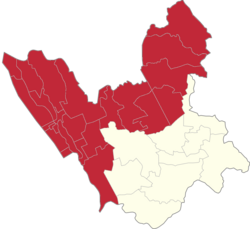
Cagayan Valley, designated as Region II, is an administrative region in the Philippines. Located in the northeastern section of Luzon, it is composed of five Philippine provinces: Batanes, Cagayan, Isabela, Nueva Vizcaya, and Quirino. The region hosts four chartered cities: Cauayan, Ilagan, Santiago, and Tuguegarao.

Lubao, officially the Municipality of Lubao, is a 1st class municipality in the province of Pampanga, Philippines. According to the 2020 census, it has a population of 173,502 people.

Malabon, officially the City of Malabon, is a highly urbanized city in the National Capital Region of the Philippines. According to the 2020 census, it has a population of 380,522 people.

Valenzuela, officially the City of Valenzuela, is a highly urbanized city in the National Capital Region of the Philippines. According to the 2020 census, it has a population of 714,978 people.

Meycauayan, officially the City of Meycauayan, is a 1st class component city in the province of Bulacan, Philippines. According to the 2020 census, it has a population of 225,673 people. It is one of the oldest towns in the province.
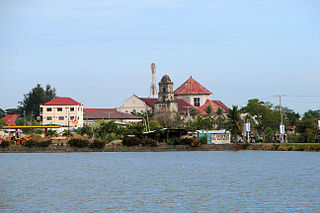
Binmaley, officially the Municipality of Binmaley, is a 1st class municipality in the province of Pangasinan, Philippines. According to the 2020 census, it has a population of 86,881 people. Binmaley, Pangasinan, a coastal town in the Philippines with a population of around 120,000 people, boasts a rich history dating back to pre-colonial times. The town's name is believed to have originated from the "Binmaley" tribe, known for their fishing skills and agricultural practices, who inhabited the area before Spanish colonization.

Ilog, officially the Municipality of Ilog, is a 2nd class municipality in the province of Negros Occidental, Philippines. According to the 2020 census, it has a population of 59,855 people.
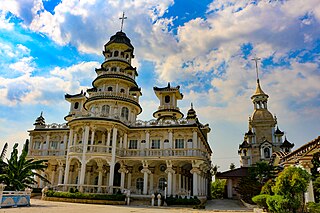
Bocaue, officially the Municipality of Bocaue, is a 1st class municipality in the province of Bulacan, Philippines. According to the 2020 census, it has a population of 141,412 people.
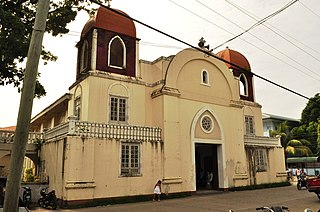
Bais, officially the City of Bais, is a 3rd class component city in the province of Negros Oriental, Philippines. According to the 2020 census, it has a population of 84,317 people.

Obando, officially the Municipality of Obando, is a 2nd class municipality in the province of Bulacan, Philippines. According to the 2020 census, it has a population of 59,978 people.

Bagabag, officially the Municipality of Bagabag, is a 2nd class municipality in the province of Nueva Vizcaya, Philippines. According to the 2020 census, it has a population of 37,985 people.

Diadi, officially the Municipality of Diadi, is a 4th class municipality in the province of Nueva Vizcaya, Philippines. According to the 2020 census, it has a population of 19,236 people.

Magallanes, officially the Municipality of Magallanes, is a 2nd class municipality in the province of Sorsogon, Philippines. According to the 2020 census, it has a population of 37,411 people.

Marilao, officially the Municipality of Marilao, is a 1st class urban municipality in the province of Bulacan, Philippines. According to the 2020 census, it has a population of 254,453 people. It is 22 kilometers (14 mi) from Manila and 23 kilometers (14 mi) from the provincial capital Malolos City.

The Cagayan River, also known as the Cagayan de Oro River, is one of the rivers draining the northern central part of the island of Mindanao in the Philippines. The river has its headwaters in the Kalatungan Mountain Range and Kitanglad Mountain Range found in the central part of the province of Bukidnon. It traverses the municipalities of Talakag, Baungon, and Libona, connecting tributaries along the way. It finally empties into Macajalar Bay in Cagayan de Oro.

Punturin is one of the 33 barangays that comprises the City of Valenzuela, Philippines. It is a mix of industrial and residential areas like its neighboring barangays of Bignay and Lawang Bato.

Rexlon Ting Gatchalian is a Filipino politician serving as the 28th Secretary of Social Welfare and Development since 2023. He previously served as the district representative and Mayor of Valenzuela, Philippines. He is the brother of politicians Win Gatchalian and Wes Gatchalian.

Malanday is a settlement and one of the constituent barangays in the city of Valenzuela, Metro Manila, Philippines. It is located in the northern section of the city bordering Meycauayan in the province of Bulacan.

Nabao Lake is a 38-hectare (94-acre) ecotourism site situated in Kalikasan Village, Barangay Santa Rita, adjacent to Barangay San Carlos in the Municipality of Cabiao, Nueva Ecija, Philippines along Jose Abad Santos Avenue.
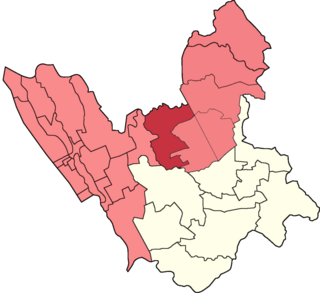
Lingunan is a landlocked 1st congressional district urban barangay in Valenzuela City, Philippines. It borders the barangays Viente Reales to the west, Canumay West to the east, Lawang Bato to the north-east and the city of Meycauayan which its barangays Lawa and Caingin borders it to the north. Based on the 2020 census, it has a population of 24,088.


